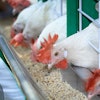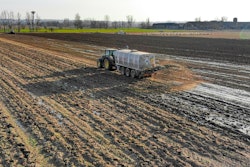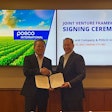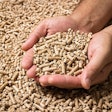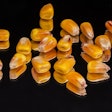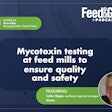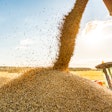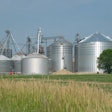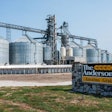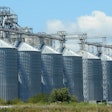
Global ingredient supplierCorbionis teaming withCargilland other players across the food industry supply chainto promote adoption of regenerative agriculture practicesthat lower CO2emissions, preserve agricultural productivity and enable long-term food security.
Recognizing the importance of creating a more sustainable supply chain by which to meet the world’s growing need for food, Corbion has joined a collaborative effort to remove barriers to regenerative agriculture practices with financial incentives and technical support for farmers.
Corbion is among a number of companies signed up to promote long-term soil health through a Cargill program that works with corn growers near Corbion’s Blair, NE, plant to implement sustainable farming practices.
These practices help increase resilience to climate change and improve farmer economics/yields, in part through the use of cover crops. The corn dextrose from these fields serves as a major raw material input for Corbion, which funded 10% of the cost of the cover crop program.
Partnership includes Practical Farmers of Iowa
The program, established by Cargill through a partnership with thePractical Farmers of Iowa, comprises three key elements: cost-sharing for growers who implement cover crops; a technical and peer support network; and monitoring and evaluation of outcomes and progress toward supply chain sustainability goals.
“At Corbion, our purpose is to preserve what matters,” said Diana Visser, senior director – Sustainability at Corbion.
“The future of our business, and that of our customers, depends in part on regenerative agriculture practices in our supply chain. Without it, we will not be able to help meet the needs of the world in terms of a safe, nutritious food supply as well as mitigating the effects of climate change. Collaborations like this one led by Cargill are essential to creating an ongoing, sustainable food system.”
What is regenerative agriculture?
Regenerative agriculture encompasses a variety of sustainable agriculture techniques that work in combination to conserve and rehabilitate ecosystems and resources, and to create a farming system that remains vital, productive and resilient over the long term.
By encouraging farmers to adopt better soil health practices, including no till, planting of cover crops, and nutrient management, the collaboration is designed to reduce GHG emissions, increase soil organic matter, increase farmer resilience, improve water quality, and leverage technical assistance and farmer-farmer networks to drive change.
Using cover crops improves soil health and quality by reducing soil erosion and by increasing biodiversity. It also helps to keep nitrogen bound in the soil where it can support crop production and prevent it from leaching into groundwater or causing eutrophication of surface water.
In 2021, cover crops planted in the program resulted in a 39% reduction in metric tons of CO2 equivalent emissions compared to if no cover crops were planted when sequestration was included. Acreage under the program has seen a potential 17% reduction in the Emission Factor thanks to the use of cover crops, which also improved water quality by 33%.
“Taking action to help increase the security and health of our supply chain is not a selfish thing to do, nor is it a selfless thing to do,” said Visser.
“It’s just a smart thing to do. The choice to advance sustainable practices recognizes that we can – and we must – meet the needs of our customers and the world while preserving the planet that feeds us all at the same time.”



